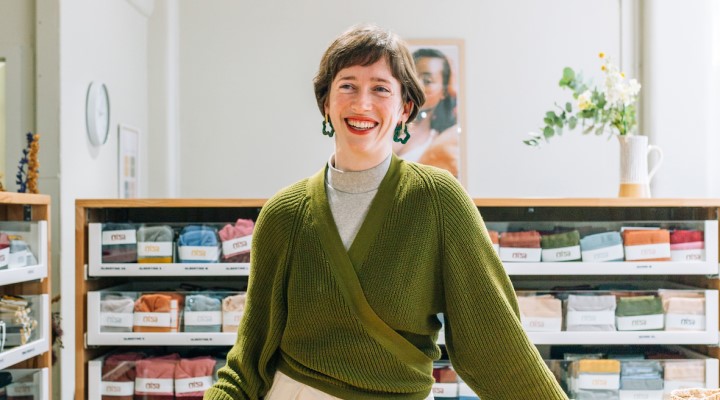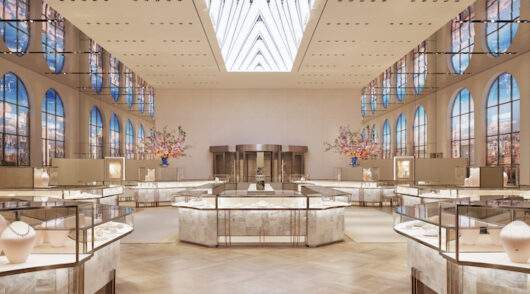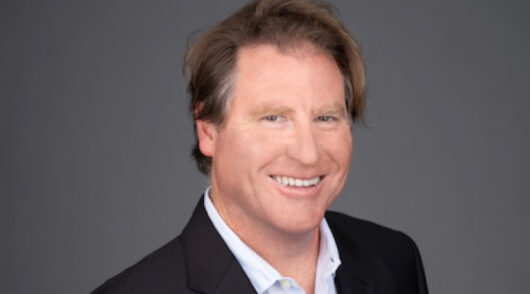This week we talk to Elisha Watson, the entrepreneur behind the apparel brand Nisa. A lawyer by profession, Elisha shifted gears and became an entrepreneur as a way to provide opportunities to refugees and migrants she had come in contact with during her work. Since 2017, Nisa has grown into a growing brand that is one of a kind, espousing sustainability not only in the materials but in the manufacturing of the products, with everything it makes sewn by hand.
ISB: What inspired you to start Nisa?
EW: I was a volunteer with the Red Cross’ resettlement programme in Wellington, which pairs up locals with recently arrived refugees, and through the Community Law’s refugee and immigration legal advice service, I met a lot of amazing people in the refugee community and saw many of those people struggling to find work. There were loads of organisations that exist to support people to find work, but in my mind, people just needed an employer to give them that first opportunity and the rest would flow naturally from there! So, I decided to quit my job as a lawyer and start a business with a mission to provide employment to people from refugee backgrounds. This expanded out to people from migrant backgrounds after a few years, as I noticed that they shared a lot of similar challenges. We started by making organic cotton briefs, and the range grew through time to include bralettes, socks, swimwear and activewear.
ISB: What was the most challenging aspect of making that career shift from lawyer to entrepreneur and how did you overcome it?
EW: I think the biggest challenges were around the level of responsibility of employing people and having to generate consistent income and manage the finances without any experience. The approach I’ve taken has been “learning by doing”, and I imagine this is the way that many entrepreneurs do it! There will always be a first time for everything, and it’s hard to gain entrepreneurial experience without being an entrepreneur and actually having stuff on the line. I do imagine that starting your second or third business would be a lot easier than starting your first, as you learn so much along the way.
ISB: Why is it important for the products be sewn by someone’s hands instead of doing a mass-production approach?
EW: The fashion industry has a notorious track record when it comes to treating garment workers fairly, paying them well and ensuring safe working conditions. Garments made locally have the benefit of you knowing about the conditions in which they are made – because local labour laws apply, and you can personally visit the factory or workshop in which they’re made. We love showing people in Wellington our workshop, educating them on how much love and effort goes into each garment, and creating relationships between our team and our customers.
Another thing, bigger brands tend to manufacture in batches of up to hundreds of thousands, and this creates a huge amount of waste. The brands then discount heavily, landfill it or burn it to clear the stock. It’s really heartbreaking, and a reason to support small-scale production.
ISB: How important is it for you to provide opportunities to women from refugee and migrant backgrounds?
EW: It’s the reason I started Nisa! Recent refugee crises in Afghanistan and Ukraine have shown that we all need to do our bit when it comes to refugee resettlement – for our governments, that means providing visas, and for communities that means being welcoming and providing opportunities so that newcomers can flourish and participate fully in their new communities.
ISB: What gave you the encouragement to market Nisa beyond NZ shores and introduce them here in Australia?
EW: About 15 per cent of our customers were based in Australia and buying from us directly online, and this happened very naturally with little to no intervention from us. So we took the leap and decided to invest more of our time and resources into deliberately growing that Australian customer base. Our Australian customers have less of a connection to the refugee community in New Zealand, but they love our values, our environmental sustainability, and our employment mission. I think those things are universal.
ISB: What is your vision for Nisa for the next couple of years?
EW: I’m about to have a baby, so I’m handing over the reins for a little while. It’s a really exciting, and a bit of a terrifying phase, and I’m so excited to see what comes of it. My vision is to provide 50 people from refugee and migrant backgrounds with jobs, and we’re well over halfway there already, so watch this space!
This story originally appeared in our sister publication, Inside Small Business.






